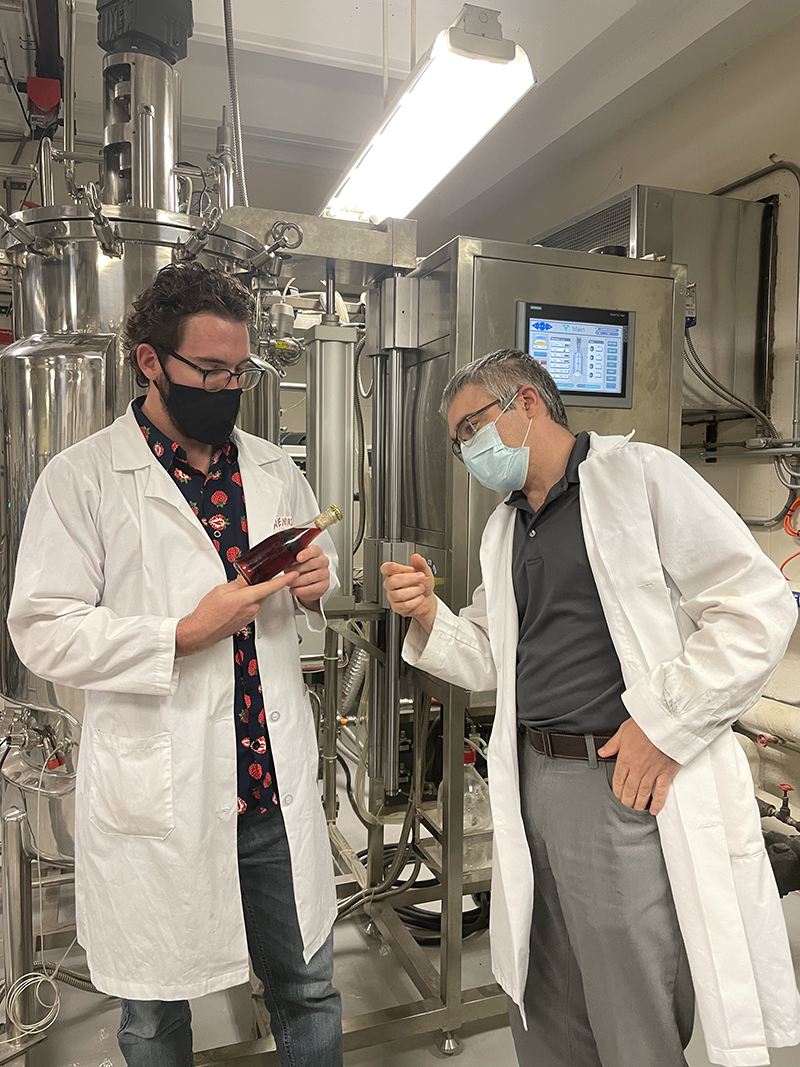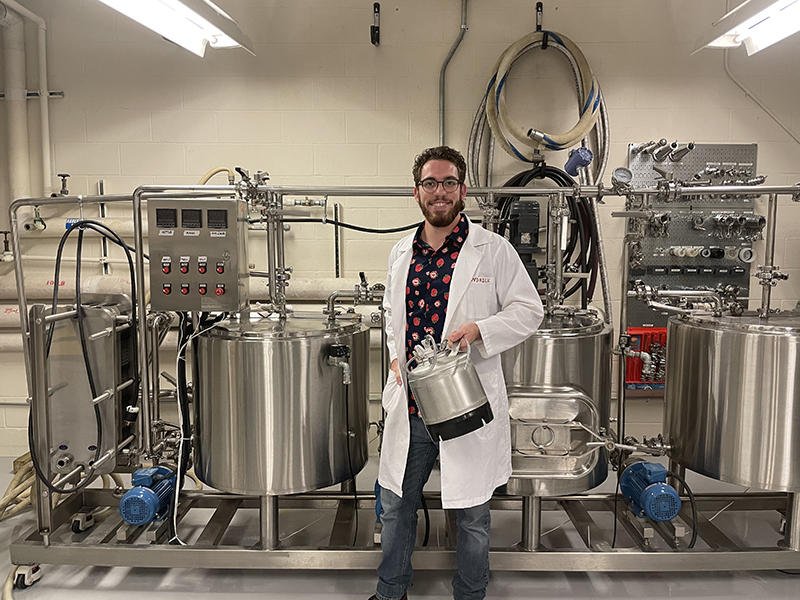Still or sparkling? When it comes to Florida-grown fruit wines, consumers prefer fizzy over flat.
That’s the finding of a recent study from the University of Florida, which shows that taste testers prefer carbonated blueberry and muscadine wines over their non-carbonated versions.
“Tasters’ preferences were most reliably associated with whether or not the wine was carbonated,” said Andrew MacIntosh, senior author of the study and an assistant professor in the UF/IFAS food science and human nutrition department.

Nicholas Wendrick, a student earning his master’s degree in food science and human nutrition from the UF/IFAS College of Agricultural and Life Sciences, is the study’s lead author. The study was conducted at the UF/IFAS Sensory Laboratory, where UF students and members of the public participate in taste panels that evaluate consumer preferences for foods and drinks. Charles Sims, director of the Sensory Lab, is one of the study’s co-authors.
“We tested four different levels of carbonation, but we found that there isn’t one level of carbonation that people overwhelmingly like best,” MacIntosh said. “That’s good news for wineries because they can tailor the level of carbonation to their needs and still provide a value-added product for the consumer.”
Carbonation changes the way we experience a beverage and can enhance or soften different qualities. MacIntosh noted that not all beverages benefit from carbonation.
“Carbonated red wine, for example, does not taste that great,” he said.
But wines with higher sugar content, such as many fruit wines, do benefit from some sparkle, as carbonation tones down the perceived sweetness of a drink. The bubbles release aromas that might be less apparent in still versions of the wine, and many people enjoy that tingling sensation you get while sipping a carbonated beverage.
In their study, the researchers carbonated several blueberry and muscadine wines made by Florida wineries, including Island Grove Wine Company, a winery in north central Florida.
“This study was key for us. Finding out how people respond to the carbonated product is essential for moving forward with any new product lines,” said Sarah Aschliman, general manager at Island Grove Wine Company.
Carbonated wine is the fastest growing segment of the wine market and is especially popular with younger consumers. However, traditional methods of carbonation, which use yeast to produce carbon dioxide bubbles, are time and labor intensive.
Forced carbonation — the method used in the study — is a much faster way to achieve effervescence. The technology is the same as that used in at-home soda makers, but at a much larger scale, MacIntosh said, noting that most commercially produced beer is force carbonated.

“The technology has been available but transferring it to the fruit wine industry is what we are hoping to do. The way we have found to do this is by first assessing how CO2 interacts with the wine, and then assessing a range of potential products though consumer sensory panels,” MacIntosh said. “Through this study we had the opportunity to work with several Florida wineries to investigate how their wine would be perceived at various carbonation levels.”
Aschliman said this collaboration is just the latest of Island Grove’s partnerships with the university.
“We’ve been working with UF to move our business forward for decades,” Aschliman said. “Going back to UF’s work to establish a blueberry industry in Florida through the UF/IFAS blueberry plant breeding program with southern highbush varieties, we have been growing blueberries for 30 plus years with their guidance and partnership. Continuing the relationship in 2010 when we started the winery, the team at UF/IFAS worked on research showing high antioxidants in our blueberry wines. Now with the carbonation research, we are excited for this new product line opportunity and expansion.”
The next step in that journey may also come from MacIntosh’s lab, where he and his team will test different packing methods for carbonated wine that will get the product from winery to store shelf.
This work was supported though the Florida Department of Agriculture and Consumer Services Viticulture Research Grant Program.
 0
0
